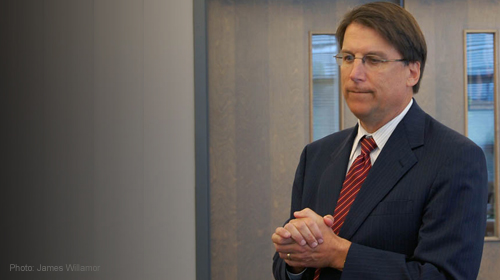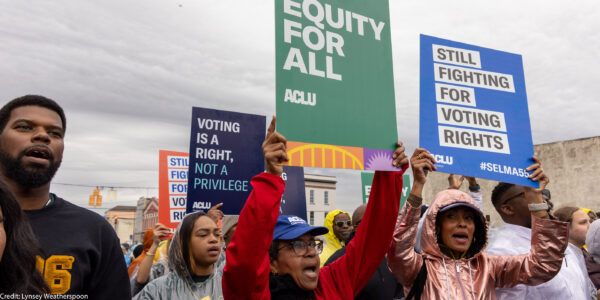
Voters get to decide who represents them, but elected officials don't get to decide which eligible voters can and can't vote. Right?
Elected officials in North Carolina think otherwise.
In August, Gov. Pat McCrory signed a law that cut early voting by more than a third, eliminating all same-day registration, and got rid of out-of-precinct ballot counting, which meant voters' ballots could be counted for the races they were entitled to vote for, like governor, even if they voted outside of their assigned precinct. We sued.
Today we're asking the court to put this discriminatory voting law on hold because there's a serious risk that it will keep people from voting in the midterm elections this fall. Our case won't reach trial until summer 2015 and we believe democracy cannot wait. If the law that keeps people from voting is subsequently found unconstitutional, North Carolinians who lost their votes will never get a do-over for that election.
More than half of North Carolina voters cast their ballots early in 2012, and black voters were far more likely to use early voting and same-day registration than white voters. For example, more than 70 percent of black voters in North Carolina cast their ballots early in 2012, while only 52 percent of white voters did.
Not only are the effects of the law devastating for voters, but the process used to pass the law was suspect. Right after the Supreme Court's ruling in Shelby County last summer, State Sen. Tom Apodaca said the legislature would be going forward with "the full bill" since they wouldn't have to worry about proving the changes weren't discriminatory. They passed the full bill within 48 hours of its introduction, which is astounding considering how arduous the process is for how an idea becomes a law in North Carolina.
This highly unusual process didn't allow for the thorough debate or input from experts and the public that would normally happen for a bill containing such major changes. Were the legislators afraid of what they might hear if they allowed more time for debate and testimony? Or did they know that their only chance to pass this bill was to ram it through as fast as possible?
November's midterm elections are fast approaching and many of the officials who tried to keep some people away from the polls will be up for re-election. Let's make sure their constituents can actually participate in the democratic process.
That's what it's for, after all.
Learn more about voter suppression and other civil liberty issues: Sign up for breaking news alerts, follow us on Twitter, and like us on Facebook.
Stay informed
Sign up to be the first to hear about how to take action.
By completing this form, I agree to receive occasional emails per the terms of the ACLU's privacy statement.
By completing this form, I agree to receive occasional emails per the terms of the ACLU's privacy statement.


